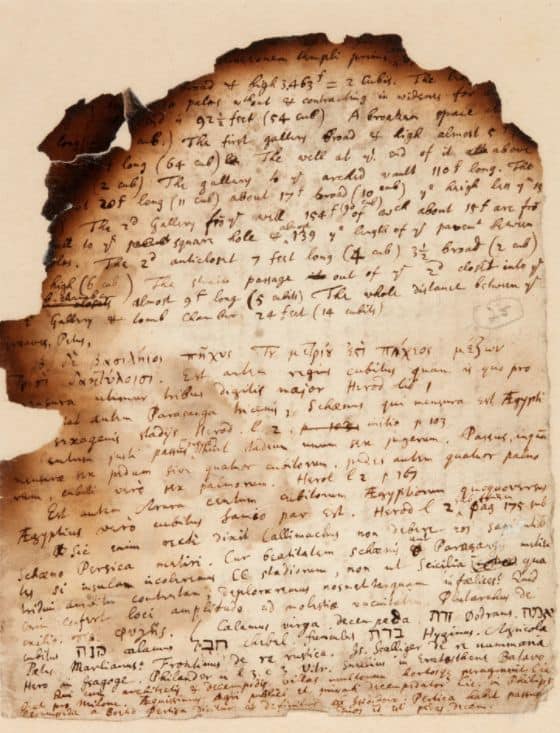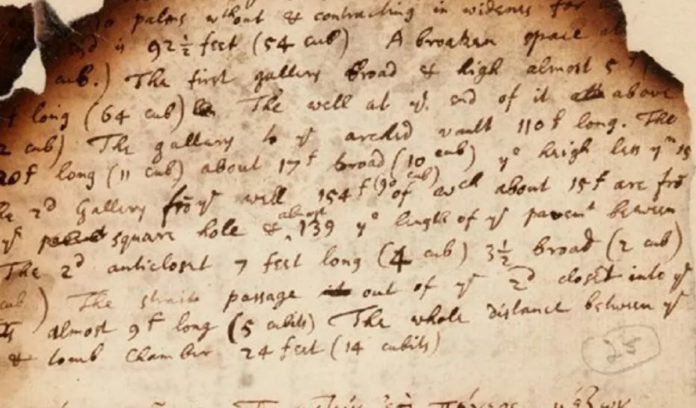Isaac Newton can be regarded as one of the most renowned scientists of all time. His research has taken him beyond mathematics, astronomy and physics to the spheres that are far from common science. Some of his notes recovered from a fire reveal that he was also interested in the apocalypse.
In addition to an impressive scientific legacy, Newton left a large number of unpublished notes after his death in 1727. They represent a kind of testimony to his long and supposedly obsessive interest in the occult: alchemy and the theory of the biblical apocalypse.
These mystical inclinations, many of which would have been considered heretical thoughts at the time, can be seen in notes that are currently auctioned at Sotheby’s house for about $ 375,000.

These manuscripts survived a fire believed to have started by his dog Diamond by accidentally capsizing a candle. In one of the notes, Newton reflects on the Great Pyramid of Giza which was built in ancient Egyptian times under the order of Pharaoh Khufu. This installation was designed on the basis of the Egyptian unit of measurement called the royal cubit.
Newton believed that he would be able to refine his own theories about gravitation by quantifying the real cubit and in doing so would provide an unprecedented and accurate measure of the Earth’s circumference. Additionally, this would help unlock other dark and sacred geometric insights, which could predict when the world would end, just as the Bible predicts.
“Today, these seem disparate areas of study – but they didn’t seem that way to Newton in the 17th century”
said Sotheby’s manuscript expert Gabriel Heaton, quoted by the Science Alert portal.
These notes are part of Newton’s amazing and complex web of studies that intertwine with one another and span areas such as natural philosophy, alchemy, and theology. Scientists may have believed that only a portion of them was suitable to end up being published, the auction announcement suggests.
“It is not surprising that he did not publish on alchemy, since secrecy was a widely-held tenet of alchemical research, and Newton’s theological beliefs, if made public, would have cost him (at least) his career”
as mentioned in its description.
